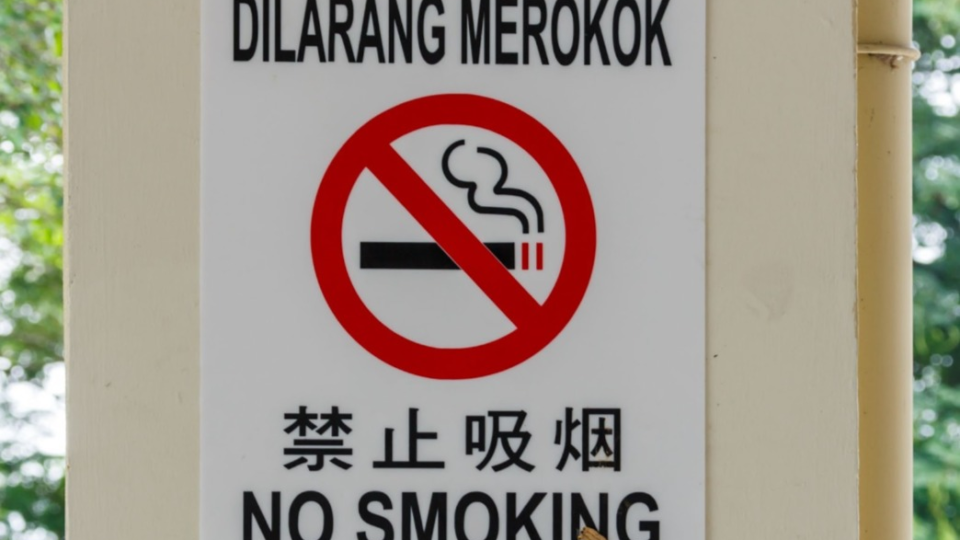Every year more than 27,200 smoking-related deaths in Malaysia are reported annually, according to the National Health and Morbidity Survey 2019. The survey also showed that a large percentage of the country’s underage children were smoking or vaping.
In an effort to prevent those children from becoming future tobacco mortality statistics, Malaysia has proposed a bill outlawing the use of tobacco products by anybody born in or after 2007, with a hefty proposed fine of RM5000 (US$1122) for violators.
Health Minister Khairy Jamaluddin tabled the first reading of Malaysia’s Tobacco Product and Smoking Control Bill 2022 in parliament yesterday.
He said there would also be a fine for anyone caught selling tobacco or vape products to those born on or after January 1, 2007.
Violators would be punished with a fine of up to RM20,000 or a year in jail for the first offense. For consecutive offenses, they could be punished with up to RM30,000 or two years in prison.
Companies caught violating the law would be liable for a fine of at least RM20,000 — but not exceeding RM100,000 — and/or its representatives could be jailed for up to two years for the first offense.
For subsequent offences, the company could be fined at least RM50,000 — but not more than RM300,000 — and/or its representatives could be jailed for up to three years.
The bill also proposes banning smoking in designated non-smoking spaces or areas and punishing violators with fines of up to RM5,000.
Khairy said the bill would grant the health director general the authority to approve or revoke clearance for tobacco products or their alternatives.
Meanwhile, owners and occupiers of buildings would also be required to post no-smoking signs and be forbidden from offering “smoking equipment, facilities, or any way intended to encourage any individual to smoke.”
Additionally, they must take all necessary precautions to stop anyone from smoking within the establishment or vehicles or risk receiving fines of up to RM5,000.
Police would also have the right to enter a location to collect evidence, as well as the authority to open any luggage, box, or container and investigate any tobacco products, smoking substances, substitute tobacco products, smoking devices, or their knockoffs.
On Monday, the proposed Control of Tobacco Product and Smoking Act 2022 was changed to apply to people born after 2007 rather than 2005.
At the time, Khairy said on social media that the change was intended to allow the government more time to create a more thorough strategy to implement the law.
He posed the hypothetical question in a Facebook post on Wednesday, asking followers to consider a future in which people born after 2007 will not understand what a cigarette is. The generational endgame aims to achieve that, he continued.
The 2019 national health survey found the country’s smoking prevalence to be 21.3% of the population. Some 45% of men across all age groups smoke. Women smokers hovered around 1%. About 17.4% of children aged 13 to 15 will be smokers, and one in 10 of those aged younger than 12 have lit up a cigarette.
The survey also showed that 1.12 million people in this country are now using e-cigarettes. An industry survey indicated that around 68% of male respondents vape, compared to 32% of women. At least 600,000 children between the ages of 11 and 18 have taken up vaping.
According to the proposed bill, the approved law will be cited as the Control of Tobacco Product and Smoking Act 2022.
However, Khairy’s much-touted “generational end game” for smoking and vaping is a recent addition to the decades-old tobacco bill. It mirrors New Zealand’s announcement in December 2021 that it would prohibit the sale of cigarettes and tobacco products (apart from vaping) to anybody born after 2008.
Meanwhile, a survey by CodeBlue found that only twelve out of forty members of parliament (MP) from both parties supported the generational smoking ban.
Among the party presidents or senior party leaders approached by CodeBlue – namely PKR president and opposition leader Anwar Ibrahim, DAP national chairman Lim Guan Eng, and Umno president Ahmad Zahid Hamidi – not one expressed support for the Tobacco and Smoking Control Bill in its current form.
However, parents and non-profit organisations have urged MPs to pass the bill to safeguard the future of young Malaysians.




